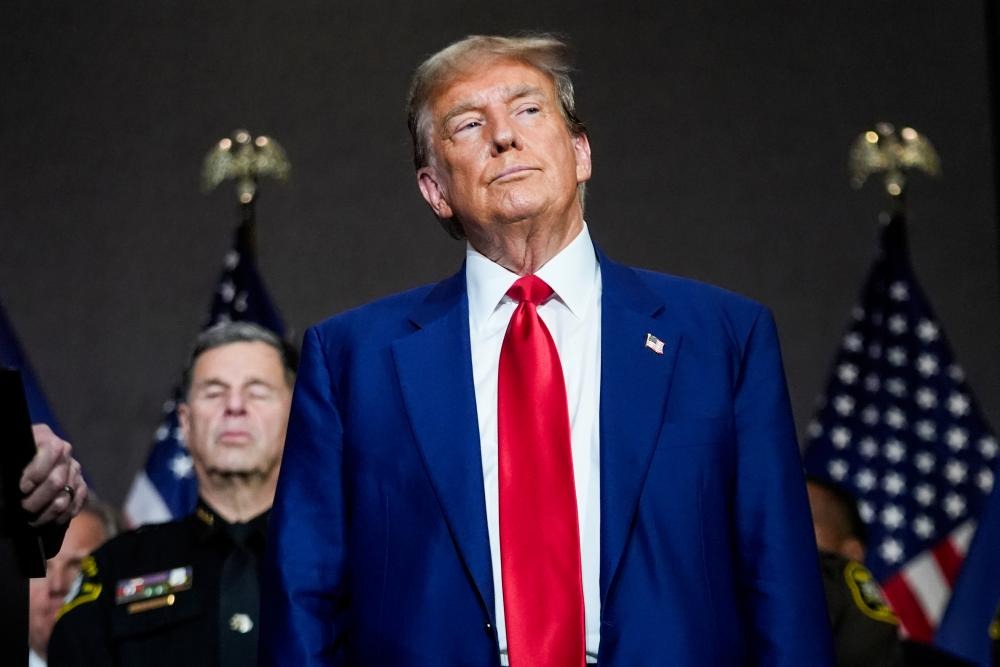On Thursday, the Supreme Court seemed inclined to reject former President Donald Trump’s broad assertion of absolute immunity from criminal prosecution for actions taken while in office. However, the court also expressed doubts about certain aspects of the federal election interference case against Trump.
The central issue at hand was whether a former president can face prosecution for official actions performed during their tenure. This question was pivotal for special counsel Jack Smith’s case, which accuses Trump of unlawfully attempting to overturn the outcome of the 2020 election.
During the court session, attorney Michael Dreeben presented the government’s arguments, with special counsel Jack Smith in attendance. Justice Sonia Sotomayor initially expressed skepticism toward Trump’s legal team’s argument that a president should be shielded from prosecution for official actions.

Donald Trump (Credits: FOX16.com)
Later on, several conservative justices appeared to consider the potential chilling effect of prosecution on a sitting president’s actions. Justice Neil Gorsuch voiced concerns about the criminal law being used against political opponents based on accusations about their motives.
Justices appointed by Republican presidents also questioned specific aspects of Smith’s case against Trump. Justices Samuel Alito and Brett Kavanaugh expressed skepticism about a crucial element of the case related to election interference.
The court’s forthcoming decision will have huge ramifications for other pending criminal cases against Trump that rely on his actions while in office. Besides Smith’s case in Washington, D.C., Trump faces charges in Georgia related to his efforts to reverse his electoral defeat in that state.
Trump has argued that subjecting a president to criminal prosecution for official acts would impede their decision-making out of fear of future prosecution. However, Justice Ketanji Brown Jackson raised concerns about the lack of accountability if presidents faced no potential penalties for criminal conduct.

Ex President Donald Trump (Credits: Nikkei Asia)
Trump was absent from the Supreme Court proceedings due to his ongoing New York criminal trial, where he faces charges of falsifying business records related to a hush money payment to a porn star.
The Supreme Court’s decision to address the immunity question has effectively delayed the election interference case, which awaits resolution in a lower court. Even if Trump’s immunity claim is rejected, the trial might not commence until after the upcoming presidential election.
The indictment against Trump, brought by special counsel Jack Smith, includes charges of conspiracy to defraud the United States. Smith alleges that Trump attempted to undermine the 2020 election results by spreading false claims of fraud, coordinating fake pro-Trump electors, and exploiting the Capitol riot on January 6, 2021.























